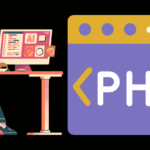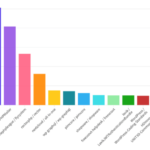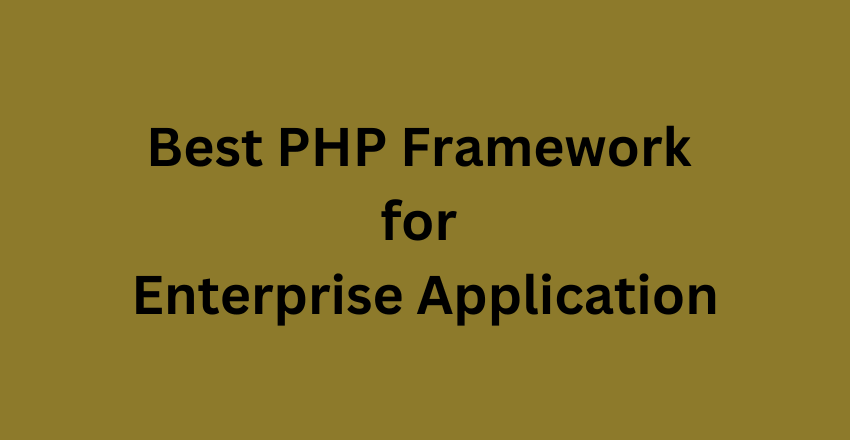
The question that developers often grapple with is: “What’s the best PHP framework for enterprise application?”
What Makes a Good PHP Framework for Enterprise Applications?
Selecting the right PHP framework for enterprise applications isn’t just important, it’s critical. The chosen framework affects how your team interacts with the project, how quickly features can be implemented, and how securely and efficiently the application runs.
Let’s delve deeper into the factors that make a good PHP framework for enterprise applications.
1. Scalability
Scalability refers to the application’s ability to handle an increased load, in terms of both data and user traffic. As your business grows, you’ll need a framework that can handle larger databases, more server requests, and more concurrent users.
Take Laravel, for example. Laravel’s Eloquent ORM (Object Relational Mapping) makes handling databases a breeze, and its in-built queuing service allows for asynchronous task execution and load balancing.
2. Security
Security is a prime concern for enterprise applications as they often deal with sensitive customer data. The chosen PHP framework should offer robust security features that protect against threats like SQL injection, cross-site scripting (XSS), and cross-site request forgery (CSRF).
Symfony shines in this regard with its built-in security component. It offers a comprehensive security system, including user authentication, authorization, and protection against major security vulnerabilities.
3. Performance
Fast response times are crucial for user experience and SEO. A good PHP framework should be efficient and provide tools for optimizing performance. Yii2, for example, is highly performant and comes with a built-in AJAX and caching support.
// Caching data in Yii2 $duration = 60; // 60 seconds $dependency = new \yii\caching\DbDependency(['sql' => 'SELECT COUNT(*) FROM post']); $posts = Post::find()->cache($duration, $dependency)->all();In the above Yii2 code snippet, the cache() method is used to cache the result of a database query. This can significantly reduce the load on your database, leading to faster response times.
4. Documentation and Community Support
A well-documented framework with robust community support is easier to learn, troubleshoot, and stay up-to-date with. Laravel is known for its comprehensive and clear documentation, and a large community of developers contributing to its growth and development.
5. Ease of Use
The framework should simplify the development process, not complicate it. CodeIgniter is famed for its simplicity and ease of setup. It does not mandate a particular coding convention, giving developers the freedom to work in a way they’re comfortable with.
6. Features and Tools
The more features a framework provides out of the box, the less time you’ll need to spend on boilerplate code. Zend, for instance, provides a ton of built-in features like forms, authentication, and even email sending.
Here’s a simple comparison table to illustrate these points:
| Framework | Scalability | Security | Performance | Documentation | Ease of Use | Features |
|---|---|---|---|---|---|---|
| Laravel | Excellent | Good | Good | Excellent | Good | Rich |
| Symfony | Good | Excellent | Good | Good | Moderate | Rich |
| CodeIgniter | Good | Good | Excellent | Good | Excellent | Moderate |
| Zend | Good | Good | Good | Good | Moderate | Rich |
| Yii2 | Excellent | Good | Excellent | Good | Good | Rich |
Remember, the “best” framework will depend on your specific needs. It’s worth spending time researching, experimenting, and discussing as a team to make an informed decision.
Why Use a PHP Framework for Your Enterprise Application?
The benefits of using a PHP framework for developing enterprise-level applications are manifold. They provide an organized, maintainable structure for code and file organization, reducing complexity and increasing productivity.
PHP frameworks promote the reuse of code and improve collaboration among developers. They also abstract out some of the more mundane aspects of programming, allowing developers to focus on the unique functionality of their application rather than boilerplate code.
Review of Top PHP Frameworks
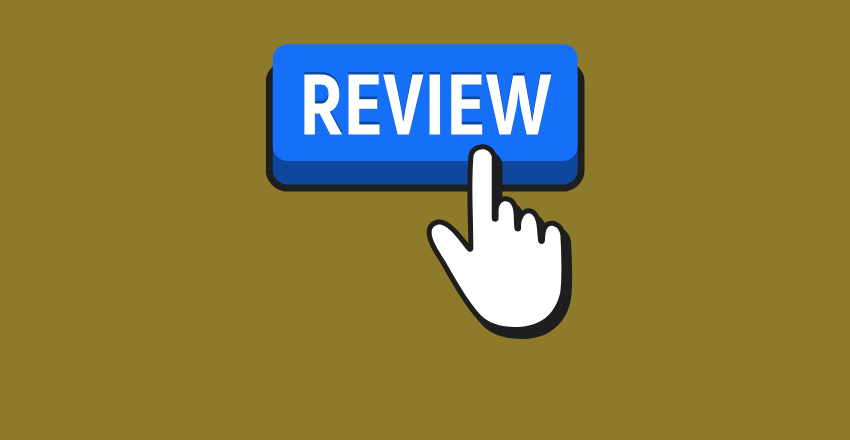
When it comes to PHP frameworks, a handful of them have garnered reputation and trust among developers. Here’s a look at some of them:
- Laravel: Known for its elegant syntax, Laravel is an excellent choice for developers who prioritize readability and simplicity. It has extensive community support and a rich set of tools that boost productivity and ease the development process.
- Symfony: A robust and scalable framework, Symfony is often the go-to choice for complex enterprise-level applications. It’s built on a set of reusable PHP components and follows the MVC (Model-View-Controller) design pattern.
- CodeIgniter: Lightweight and with a very small footprint, CodeIgniter is easy to install and provides a straightforward path from development into production.
- Zend Framework: Also known as Laminas Project, it is a professional-grade framework that’s heavily customizable and comes with the flexibility that enterprise applications require.
- Yii 2: Yii 2 excels in performance and is equipped with powerful caching support, making it suitable for high-traffic applications.
- Phalcon: Uniquely, Phalcon is delivered as a C-extension, meaning it’s incredibly fast. It’s efficient memory utilization makes it a strong candidate for high-load applications.
Successful Enterprise Applications Using PHP Frameworks
- Accenture.
- trivago.
- Typeform.
- BlaBlaCar.
- Yousign.
- Oxylabs.
- powercloud.
- Statista.
How to Choose the Right PHP Framework for Your Enterprise Application

The choice of a PHP framework can significantly influence the trajectory of your enterprise application development. It can affect everything from the speed of development and future scalability to the overall performance of your application. With PHP development experience, I have learned the importance of choosing the right framework.
Let’s delve into how you can select the ideal PHP framework for your needs.
1. Understand Your Project Requirements
The first step in choosing a framework is to thoroughly understand your project requirements. Are you building a complex enterprise application that needs to handle heavy traffic and large databases? Or are you developing a simple, lightweight application with lesser functionality?
For instance, if you’re developing a complex application with a lot of business logic, Symfony or Laravel would be excellent choices due to their robust set of tools and scalability features. On the other hand, if you’re developing a simpler, smaller application, a lightweight framework like CodeIgniter might be more suitable.
2. Evaluate Scalability, Security, and Performance Needs
Different frameworks have different strengths. Laravel, for instance, is known for its robust scalability features and is ideal for applications that need to handle growing traffic and data. Yii is known for its performance optimization features, making it suitable for high-performance applications.
Security is also a crucial factor to consider. If your application is going to handle sensitive user data, you need a framework with robust security features. Symfony, for instance, has a comprehensive security component that protects against common security threats.
3. Consider the Learning Curve and Team Expertise
Every framework has a learning curve, and the proficiency of your development team with a framework can greatly affect the speed of development. If your team is already proficient in a certain framework, it might make sense to use that framework, provided it meets your other requirements.
For example, if your team has extensive experience with Laravel and your project requires a scalable, feature-rich framework, Laravel could be the perfect fit.
4. Community Support and Documentation
The larger the community and the better the documentation, the easier it will be to learn the framework and solve any problems you might face. Laravel and Symfony, for instance, have large, active communities and excellent documentation.
5. Consider Long-Term Maintenance and Support
Enterprise applications are typically long-term projects that require maintenance and updates. Hence, it’s important to choose a framework that is actively maintained and has regular updates.
For instance, while Laminas is a powerful framework, it has been succeeded by the Laminas Project, which is now where the active support and updates happen. Therefore, for a new project, considering Laminas might be a better long-term choice.
Here’s a simple comparison table to illustrate these points:
| Framework | Project Complexity | Scalability | Security | Performance | Learning Curve | Community & Documentation | Long-Term Support |
|---|---|---|---|---|---|---|---|
| Laravel | High | Excellent | Good | Good | Moderate | Excellent | Excellent |
| Symfony | High | Good | Excellent | Good | High | Good | Excellent |
| CodeIgniter | Low | Good | Good | Excellent | Low | Good | Good |
| Zend/Laminas | High | Good | Good | Good | High | Good | Good (Laminas) |
| Yii2 | High | Excellent | Good | Excellent | Moderate | Good | Good |
Remember, the “best” framework depends on your specific needs and circumstances. Thoroughly evaluating your project requirements and team expertise can greatly help in selecting the right PHP framework.
Common Problems When Choosing the Best PHP Framework for Enterprise Application

1. Problem: Overwhelm from Numerous Options
With several PHP frameworks available, it can be overwhelming to choose the right one. Each boasts different features, methodologies, and community support.
Consequence: The decision paralysis can lead to a hasty or ill-informed choice, resulting in choosing a framework that doesn’t align with the project’s needs.
Solution: Start by outlining your project’s needs and identify the must-have features for your enterprise application. This could include things like scalability, security, or specific functionality.
2. Problem: Considering Short-Term Needs Over Long-Term
Developers might choose a framework based on immediate needs without considering the long-term implications.
Consequence: The chosen framework might lack scalability or long-term support, causing issues as the application grows or needs updates.
Solution: Always factor in long-term needs when choosing a framework. For instance, if you anticipate high traffic growth, Laravel with its built-in scalability features might be a solid choice.
3. Problem: Ignoring Team Expertise
Sometimes, developers choose a framework based on its popularity or features without considering their team’s expertise.
Consequence: This could lead to a steep learning curve and slower development process.
Solution: Always consider your team’s expertise. For example, if your team has extensive experience with Symfony, it might make sense to choose Symfony, provided it meets your other requirements.
4. Problem: Overlooking Community Support
Some developers overlook the importance of community support and active development when choosing a PHP framework.
Consequence: Limited community support can mean fewer resources for learning and problem-solving. It could also mean fewer updates and patches.
Solution: Consider the size and activity of the framework’s community. Laravel and Symfony, for example, have large active communities that can be beneficial for problem-solving and learning.
5. Problem: Prioritizing Ease of Use Over Functionality
Developers might be tempted to choose a framework that’s easy to use but lacks robust functionality.
Consequence: The chosen framework might not provide the features necessary for building an efficient and scalable enterprise application.
Solution: While ease of use is important, it shouldn’t compromise the functionality you need. CodeIgniter, for example, is easy to use but also offers a robust set of tools for building efficient applications.
6. Problem: Not Factoring in Performance
Performance can be overlooked in favor of other factors like features or ease of use.
Consequence: A framework that isn’t built for performance can lead to a slow application, affecting user experience and SEO.
Solution: Always consider performance when choosing a PHP framework. Yii2, for example, is known for its high performance and efficiency.
7. Problem: Neglecting Security Features
Security is sometimes overlooked when choosing a PHP framework.
Consequence: This can result in security vulnerabilities in your application, potentially leading to data breaches.
Solution: Always consider the security features of a PHP framework. Symfony, for example, has a comprehensive security component that protects against common security vulnerabilities.
FAQs about Best PHP Framework for Enterprise Application

FAQ 1: How do PHP frameworks affect testing and debugging?
PHP frameworks often come with built-in tools for testing and debugging, which can greatly enhance the development process. For instance, Laravel comes with an inbuilt testing tool called PHPUnit and a debugging tool named Laravel Debugbar.
Code Sample for Testing in Laravel:
<?php use Illuminate\Foundation\Testing\WithoutMiddleware; use Illuminate\Foundation\Testing\DatabaseMigrations; use Illuminate\Foundation\Testing\DatabaseTransactions; class ExampleTest extends TestCase { /** * A basic functional test example. * * @return void */ public function testBasicExample() { $this->visit('/') ->see('Laravel 5') ->dontSee('Rails'); } }FAQ 2: Can PHP frameworks support asynchronous programming?
Yes, some PHP frameworks do support asynchronous programming. One example is Swoole, a PHP coroutine-based concurrency library. If you’re developing real-time applications, this is a handy feature.
Code Sample for Swoole:
<?php use Swoole\Http\Server; use Swoole\Http\Request; use Swoole\Http\Response; $server = new Server("127.0.0.1", 9501); $server->on("start", function (Server $server) { echo "Swoole http server is started at http://127.0.0.1:9501\n"; }); $server->on("request", function (Request $request, Response $response) { $response->header("Content-Type", "text/plain"); $response->end("Hello World\n"); }); $server->start();FAQ 3: Can PHP frameworks be used with frontend JavaScript frameworks?
Absolutely. PHP frameworks can easily be integrated with frontend JavaScript frameworks. For instance, Laravel provides out-of-the-box support for Vue.js, a popular JavaScript framework.
Code Sample for Vue.js in Laravel:
In a Laravel project, you can include a Vue component like so:
<div id="app"> <example-component></example-component> </div>FAQ 4: How do PHP frameworks handle databases and migrations?
PHP frameworks provide powerful ORM (Object-Relational Mapping) for efficient database operations. For example, Laravel uses an ORM called Eloquent and also provides a migration system to handle database changes over time.
Code Sample for a Database Migration in Laravel:
<?php use Illuminate\Support\Facades\Schema; use Illuminate\Database\Schema\Blueprint; use Illuminate\Database\Migrations\Migration; class CreateFlightsTable extends Migration { /** * Run the migrations. * * @return void */ public function up() { Schema::create('flights', function (Blueprint $table) { $table->increments('id'); $table->string('name'); $table->string('airline'); $table->timestamps(); }); } /** * Reverse the migrations. * * @return void */ public function down() { Schema::dropIfExists('flights'); } }FAQ 5: How well do PHP frameworks support RESTful API development?
PHP frameworks are excellent for RESTful API development. For instance, Lumen is a PHP micro-framework by Laravel designed specifically for building APIs and microservices.
Code Sample for a Basic Lumen API:
<?php use Illuminate\Http\Request; use Illuminate\Http\Response; $app->get('/user/{id}', function ($id) { return new Response(['id' => $id, 'name' => 'John Doe'], 200); });Each of these features and components within PHP frameworks can contribute to the effectiveness of enterprise application development, but remember to evaluate based on your specific needs and team’s expertise.
Wrapping Up
Choosing the right PHP framework for enterprise application development is a crucial decision that can significantly impact your project’s success. While PHP may have its skeptics, it remains a robust and popular language for web development.
Considering factors like scalability, security, performance, and community support can help you select a PHP framework that best aligns with your enterprise application’s needs.
And remember, the “Best PHP Framework for Enterprise Application Development in 2023” ultimately depends on your project’s unique needs and goals.
Intrigued to learn more or share your thoughts? We’d love to hear from you.
Ashley is an esteemed technical author specializing in scientific computer science. With a distinguished background as a developer and team manager at Deloit and Cognizant Group, they have showcased exceptional leadership skills and technical expertise in delivering successful projects.
As a technical author, Ashley remains committed to staying at the forefront of emerging technologies and driving innovation in scientific computer science. Their expertise in PHP web development, coupled with their experience as a developer and team manager, positions them as a valuable resource for professionals seeking guidance and best practices. With each publication, Ashley strives to empower readers, inspire creativity, and propel the field of scientific computer science forward.
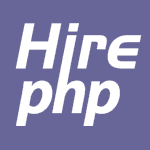


![How to use Cursor AI to write PHP Code[Example]](https://hirephpdeveloper.dev/wp-content/uploads/2025/03/How-to-use-Cursor-AI-to-write-PHP-Code-1-150x150.png)
